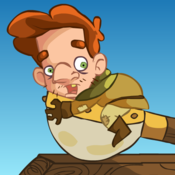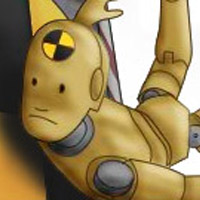
general schmidt stalingrad
When I say that we Germans must focus above all on the unity and independence of Germany, on the affirmation of the vital national rights of our nation, I realize that in this way we are best serving the cause of peace, of international dtente and reconciliation between peoples. After his return to the German Democratic Republic in 1953, Paulus gave a press conference in Berlin on 2 July 1954 in the presence of Western journalists, titled "On the vital issues of our nation". Armee. But as soon as a tank passed over an entrenchment, our men - soldiers, sergeants and officers - got up again and opened fire on the departing armored vehicles.. Paulus surrendered in Stalingrad on 31 January 1943,[a] the same day on which he was informed of his promotion to field marshal by Hitler. He later acted as a witness for the prosecution at the Nuremberg Trials. [2] On 25 October 1940 he served as chief of staff in 5th Army Corps, a position he held until 25 March 1942, when he moved to the Fhrerreserve at Oberkommando des Heeres (OKH). [10] Later that day, Schmidt and Paulus held a conference attended by General Hermann Hoth and Major-General Pickert,[10] during which Schmidt "did much of the talking". Army [4], Despite Lieutenant-Colonel Niemeyer's frank and pessimistic area briefings, Schmidt severely underestimated the build-up and capabilities of Soviet forces at Stalingrad following the initial Axis successes, a failing that he unlike Paulus subsequently did not attempt to excuse. After a leave of absence due to illness, he joined the Alpenkorps as a staff officer, serving in France, Romania and Serbia. [29] The signal sent from Sixth Army HQ on the evening of 30 January, that stated that soldiers were "listening to the national anthem for the last time with arms raised in the German salute", was, according to Beevor, much more likely to have been written by Schmidt than by Paulus. Telling Hitler that collapse was "inevitable," Paulus stressed that his men were without ammunition or food, and he was no longer able to command them. [18], Paulus, a Roman Catholic, was opposed to suicide. He had the appearance of a sick and physically exhausted man and his face was twitching in a nervous tic.. There, they encountered the freshly-formed Soviet 2nd Guards Army that had finally arrived on the scene. Diese Seite wurde zuletzt am 24. [9] However, he only took over his new command on 20 January, six days after the sudden death of Reichenau,[10] leaving him on his own and without the support of his more experienced sponsor. Analyse und Dokumentation einer Schlacht, in the evening of 13 January 1943 - ordered to, during the night of 19 and 20 January 1943 - Certainly, in their time they assessed the political-military situation of Germany with perseverance and sobriety, developed principles and positions for the strategy and tactics of a general nature, which were valid for the special situation in which Germany would be in a state of war. Category : German commanders at the Battle of Stalingrad Stopped Cold at Stalingrad - HistoryNet Schmidt continued: 'At the same time I have to inform you that the Russians are at the door.' Dr. Karl Uhrmacher and the 6. Manage all your favorite fandoms in one place! This list may not reflect recent changes . The implication was clear: Paulus was to commit suicide. And the mission would have had to be accomplished by troops who were thoroughly weary through lack of food and whose mobility had been almost completely lost. The Soviet Operation Koltso (Ring) to defeat the enemy grouping encircled in the city was approaching its finale. Evacuating their HQ at Golubinsky amid a bonfire of burning files and stores, they flew to Nizhne-Chirskaya that same day, just missing Hitler's order that "Sixth Army stand firm in spite of danger of temporary encirclement." Friedrich Wilhelm Ernst Paulus (* 23.September 1890 in Guxhagen; 1. While in Soviet captivity during the war, Paulus became a vocal critic of the Nazi regime and joined the Soviet-sponsored National Committee for a Free Germany. 26. [20]:207208,212215 Beevor comments, "Whether this was a ploy to allow Paulus to distance himself from the surrender, or a further example of Schmidt handling events because Paulus was in state of nervous collapse, is not clear." The march towards the Volga had ended.[17]. Wilhelm Adam (28 March 1893 - 24 November 1978) was an officer in the Wehrmacht of Nazi Germany during World War II. [16] However, on 24 November Sixth Army received a further Fhrer order relayed from Army Group B, ordering them to stand firm. He was assigned to the 13th Infantry Regiment at Stuttgart as a company commander. [13], Regarding the resistance to capitulate, according to Adam, Paulus stated .mw-parser-output .templatequote{overflow:hidden;margin:1em 0;padding:0 40px}.mw-parser-output .templatequote .templatequotecite{line-height:1.5em;text-align:left;padding-left:1.6em;margin-top:0}, What would become of the war if our army in the Caucasus were also surrounded? The dispatch came early this morningit was the last one.'. After the Soviet troops opened intensive fire from machine guns and mortars on the building at about six oclock in the morning, the shooting from the German side stopped. [2] On 26 January 1942 he was awarded the German Cross in Gold.[3]. Dyatlenko had no doubt that Schmidt was "the eyes and hand of the Nazi Party" in the Sixth Army, because captured officers reported that "Schmidt was commanding the Army and even Paulus himself."[21]. Schmidt was not a man of great tactical skill, daring or initiative; rather he was characterised by a stubborn optimism, tenacity and a willingness to obey the orders of his superiors without question. German soldiers fighting at Stalingrad, December 1942. [19] Beevor states that it is unclear what happened at the meeting, except that Paulus, who still believed in the chain of command, refused to break out without a clear order to do so from a superior, something that the politically deft Manstein refused to give.[19][20]. In 1942, Paulus was given command of the 6th Army despite his lack of field experience. However, the lack of food and ammunition, equipment losses and the deteriorating physical condition of the German troops gradually wore down the German defense. Janaury 1943, Stalingrad - Oberst - [19] Beevor states that it is unclear what happened at the meeting, except that Paulus, who still believed in the chain of command, refused to break out without a clear order to do so from a superior, something that the politically deft Manstein refused to give.[19][20]. That danger is real. How the Germans tried to rescue their troops at Stalingrad (PHOTOS . [1] On 19 January, Major Thiel was sent by VIII Air Corps to assess the runway at Gumrak and see whether further landings by Luftwaffe supply aircraft would be possible. pocket and became General Officer, Chef Generalstab XIV. Schmidt was appointed chief of staff to General Friedrich Paulus in Sixth Army on 15 May 1942, replacing Colonel Ferdinand Heim after the counter-attack against Marshal Semyon Timoshenko at the Second Battle of Kharkov. Adam later served in the National People's Army of East Germany . At that point in time, the 6th Army in Stalingrad was cut into two groupings isolated from each other. Hitler responded by showering a raft of field promotions by radio on Paulus' officers to build up their spirits and bolster their will to hold their ground. Soviet soldiers attacking last german resistance in Stalingrad. There are still many people today who wonder how Germany, which no doubt possessed a highly trained army, could be defeated in two wars. Calender - November1942 during the battle for Stalingrad November 1942 . "[11] Schmidt maintained that the army, which would adopt a "hedgehog" defence, must be resupplied, but that the situation was not yet so desperate as there were plenty of horses left that could serve as food. [23], From 1953 to 1956, Paulus lived in Dresden, East Germany, where he worked as the civilian chief of the East German Military History Research Institute. Every day that the army holds out longer helps the whole front and draws away the Russian divisions from it. He is Lieutenant General Mikhail Malinin, chief of staff for the Stalingrad front and one of the men responsible for putting into operation plans for the encirclement of the German 6th Army. Interrogation of captured German officers led Soviet commanders to realise that, because of the toll of events on Paulus's nerves, Schmidt was the real commander of the defending forces. [6] This is incorrect, as Paulus' family was never part of the nobility,[citation needed] and Antony Beevor refers to his "comparatively humble birth" (like Rommel's family; their "sole similarity").[7]. exact date unknow end Nov. - early December 1942, flew out : in the evening of 22 January 1943 - ordered to. Like many West German economists and politicians, he was in favor of taking advantage of the slightest opportunity to negotiate with the East. Malinin looked 35, square-faced with hair in a short pompadour which stuck up like a schoolboy's. [36], After Voikovo, Schmidt was held in the Lubyanka prison. brought to the divisional doctor, Oberstarzt Dr. Manstein's forces were unable to reach Stalingrad on their own and their efforts were eventually halted due to Soviet offensives elsewhere on the front.[12]. Following the German surrender after the Battle of Stalingrad, he became a member of the National Committee for a Free Germany. jaundice. who took the 6. Juni 1942 zum Generalmajor ernannt und nahm an der Schlacht von Stalingrad teil. They led the Soviet soldiers to Pauluss room. It now seemed more impossible than ever to act against an order of the High Command or Army Group.[17]. Hearing the sound of gunfire, Ilchenko made a grab for his holster, but it only turned out to be suicides. He had not seen her since 1942 and would not see her again, as she died in 1949 while he was still in captivity.[20]. [33], Of all the senior German officers held at Zavarykino, Schmidt was the most disliked by the Soviets; on one occasion he apparently reduced a mess waitress to tears during lunch, for which a Soviet officer, Lieutenant Bogomolov, made him apologise. Nikolay Dyatlenko - Wikipedia This is the precondition for collective security in Europe and at the same time for a happy future for our own nation. Arthur Schmidt (25 October 1895 - 5 November 1987) was an officer in the German military from 1914 to 1943. Nevertheless, the hope of a restoration of freedom and of deliverance from death or captivity would have given the troops the strength to make the impossible possible!. He was allowed to move to the German Democratic Republic in 1953, two years before the repatriation of the remaining German POWs. For example: Mark Arnold-Forster's The World At War, companion volume to the documentary of the same name, Stein and Day, 1973, pp. Stalingrad cover The novel begins with a meeting between fascist dictators Adolf Hitler and Benito Mussolini on April 29, 1942, in which they discuss the progress of the war. Arthur Schmidt (25 October 1895 5 November 1987) was an officer in the German military from 1914 to 1943. A German officer who met the Soviet soldiers told them through an interpreter: Our top commander wants to talk to your top commander. To that, Ilchenko retorted: Well, our top commander has many other things to attend to. https://books.google.com/books?id=OWOQAv01lYEC, https://books.google.com/books?id=inwd2rDaLm4C&printsec=frontcover&dq=isbn:1874622469&cd=1#q=schmidt, https://books.google.com/books?id=xg8QrmsLK-kC, https://books.google.com/books?id=qWuWOFS4o7AC&dq=%22arthur+Schmidt%22+stalingrad, "A Desperate Struggle to Save a Condemned Army: a critical review of the Stalingrad airlift", http://www.stormingmedia.us/44/4497/A449793.html, "Photographs of Schmidt at a Sixth Army reunion, Wiesbaden 1969", http://www.stalingrad.net/german-hq/members-aok-6/members_aok_6_a.htm, Pages containing cite templates with deprecated parameters, Articles incorporating text from Wikipedia, Lieutenant generals of the German Army (Wehrmacht), Recipients of the Knight's Cross of the Iron Cross, German prisoners of war in World War II held by the Soviet Union, German commanders at the Battle of Stalingrad, Knights of the House Order of Hohenzollern, Do Not Sell or Share My Personal Information. wounded, in the evening of 19 January 1943 - ordered to, became As a result of the talks, the southern pocket of German troops, commanded by General Roske, was to capitulate. Paulus remained absolutely firm in obeying the orders he had been given. Career [ edit] Schmidt joined the Prussian Army in 1906 and served during World War I. The twin pincers of this counteroffensive struck the flanks of the German salient at points about 50 miles . The German soldiers, ragged and in light coats, looked like ghosts with hollow, unshaven cheeks. On its way to the HQ, the car caught up with columns of German prisoners dragging themselves along the road. Aggressively ideological, his aggression would translate into a passive kind as he functioned as his chief's alter ego [] As late as mid-December, Paulus, even as illusions had all but vanished, would still not contradict Schmidt when he presented his tragically absurd hypotheses to visitors to the besieged and starving Sixth Army.[24]. The anti-tank gunners (anti-tank rifle squads) fought to the last round, to the last grenade. By the end of the war, he was a captain. It appears the Storks only had the range to fly one way. Friedrich Wilhelm Ernst Paulus (23 September 1890 1 February 1957) was a German field marshal during World War II who is best known for commanding the 6th Army during the Battle of Stalingrad (August 1942 to February 1943). [37] He died in Karlsruhe on 5 November 1987. Nachdem er anstelle von Paulus im Keller des Kaufhauses Univermag die bergabeverhandlungen gefhrt und die Kapitulation der 6. Had the Germans succeeded in their Operation Winter Storm (Operation Wintergewitter), all the efforts and sacrifices of the Soviet troops which had been heroically defending Stalingrad would have been in vain. Following his orders, Paulus prepared to break out of Stalingrad. We reacted to this order with astonishment, since we had expected some sort of discussion with the Army Group, and were fairly certain of the breakout. Maybe since the last time we met - more than 10 years ago - our views on specific issues differed, but I know in general, through his writings, with what sense of responsibility, how restlessly he refused to align himself with the Federal Chancellor's European Defence Community policy. The German troops sustained significant losses and found it difficult to make headway. But I don't think I remained in this state for very long. Paulus and I came separately to the same conclusion. [6] Many false reports of the massing of Soviet forces were received from the Romanian sector, so when Stck radioed at 5 a.m. on 19 November that an offensive (marking the start of Operation Uranus, the Soviet encirclement of Axis forces) was about to begin, Schmidt, who was furious when disturbed by false alarms, was not informed,[7] although he was awoken twenty minutes later when it became clear that this was no false alarm. He remained there until 1955, when a visit to Moscow by West German Chancellor Konrad Adenauer led to his release, together with the remaining high-ranking German prisoners.[35]. eMedals, Web. He was a prisoner of war in the Soviet Union for twelve years, and was released following West German chancellor Konrad Adenauer's visit to Moscow in 1955. But it is a misconception and dangerous idea that the age of nations is over simply because a power, the United States, relies on this position so that it can bend over and dominate other nations at the lowest cost to it. 'One can't help feeling it's an invitation to suicide. Germans at the gates of Stalingrad, 1942-1943 In der Endphase der Schlacht bernahm er von Paulus weitgehend die Fhrung der Armee. [36], After Voikovo, Schmidt was held in the Lubyanka prison. STALINGRAD: BREAKOUT AND AIRLIFT OPERATION - Academia.edu In 1953, Paulus moved to East Germany, where he worked in military history research. [14], On 7 January 1943 General Konstantin Rokossovsky, commander of the Red Army on the Don front, called a cease-fire and offered Paulus' men generous surrender terms: normal rations, medical treatment for the ill and wounded, permission to retain their badges, decorations, uniforms and personal effects. Click here to find out more. [1] On 19 January, Major Thiel[who?] Stalingrad encirclement from Pitomnik airfield He remained there until 1955, when a visit to Moscow by West German Chancellor Konrad Adenauer led to his release, together with the remaining high-ranking German prisoners.[35]. We shall be back for you at 9.00. [26] Schmidt addressed Thiel in the same vein: "[] here you come trying to justify the Luftwaffe, that has committed the worst treason, that has ever occurred in German history [] An entire army, this wonderful 6th Army, must go to the dogs like this." A huge Soviet counteroffensive, planned by generals G.K. Zhukov, A.M. Vasilevsky, and Nikolay Nikolayevich Voronov, was launched on Nov. 19-20, 1942, in two spearheads, north and south of the German salient whose tip was at Stalingrad. [9] At Nizhne-Chirskaya on 22 November, Schmidt told 8th Air Corps's commander, General Martin Fiebig, that Sixth Army needed to be resupplied by air. "[27], Thyssen comments that both Paulus and Schmidt seemed to have forgotten Fiebig's statements on 21 and 22 November that the Luftwaffe would not be able to supply Sixth Army in the Kessel.[28]. was the 01 of 6. An ordinary lieutenant could not accept the capitulation of the German commander and, gradually, representatives of the senior and top-level Red Army command started arriving at the department store. Januar 1943 gemeinsam mit dem tags zuvor zum Generalfeldmarschall befrderten Paulus in sowjetische Kriegsgefangenschaft, zunchst im Kriegsgefangenenlager 5110/48 Woikowo, dann im Gefngnis Lubjanka. He attained the rank of Generalleutnant during World War II, and is best known for his role as the Sixth Army's chief of staff in the Battle of Stalingrad in 194243, during the final stages of which he became its de facto commander, playing a large role in executing Hitler's order that it stand firm despite being encircled by the Red Army. explain to Hitler the situation of the encircled In June 1942, Nazi Germany was looking forward to victory. Hitler awarded the Knight's Cross to Schmidt on 6 January 1943 on the same day that Paulus signalled to General Kurt Zeitzler: "Army starving and frozen, have no ammunition and cannot move tanks any more" [25] and made him Generalleutnant on 17 January. Believing that an attempt to break the encirclement would be made here, the Soviet command attached special importance to the sector and intensively reinforced it. As a former military man and commander of a large sector, taking into account the current situation and based on my experiences, I have come to the conclusion that we must definitely take the path that, in any form, leads to the development and consolidation of relations between East and West. Armee war diary and its annexes. Nach dem Krieg wurde er in die Reichswehr bernommen. The Soviet Operation Uranus, as a result of which the 300,000-strong German grouping ended up trapped in a pocket on November 23, 1942, shocked the leaders of the Third Reich. January 1943). Fighting extended to the full depth of our defense, was how the chief political officer of the 20th Independent Anti-Tank Artillery Brigade, Vladimir Bubnov, later described the fighting at the neighboring village of Gromoslavka. Lasting from August 1942 to February 1943, the Battle of Stalingrad was the largest battle of World War II and in the history of warfare. German hopes for the rescue of the encircled grouping were finally dashed by the Soviet Operation Little Saturn that started on December 16. At first, Paulus refused to collaborate with the Soviets. Paulus said he had not surrendered and refused to order the remaining German forces to surrender. It was the HQ commander. The History Press | Hitler's defeat at Stalingrad After leaving university without a degree, he joined the 111th Infantry Regiment as an officer cadet in February 1910. He was told that "The Luftwaffe doesn't have enough aircraft." [1] Am 17. "[31] Schmidt, together with Paulus and Colonel Adam, were taken to Don Front HQ at Zavarykino, where they were interrogated. The German troops closest positions to the encircled 6th Army were in the area of the Chir River (just 40 km away). The recently formed Army Group Don under the command of Field Marshal Erich von Manstein, reinforced with divisions transferred from the North Caucasus and Western Europe, was tasked with opening a corridor to the city. We must hold them here to the last so that the eastern front can be stabilized. Manstein told Paulus that the relief would need assistance from the Sixth Army, but the order to initiate the breakout never came. Soviet and German soldiers, who just a few hours earlier had been shooting at one another, now stood quietly together in the yard. later during World War 2, German officers who flew out of the Stalingrad Friedrich Paulus on the way to the Soviet 64th Army HQ. Gerhard Hindenlang - Facing Stalingrad The basement was literally packed with soldiers - there were hundreds of them here. In comparison . "Award Document to General der Panzertruppe Paulus, Item Number: EU4642". This decision to stand firm in a "hedgehog" defence sealed Sixth Army's fate. This is on page 194. On the same plane as him Street fighting was still under way in the center of Stalingrad when German officers, accompanied by Soviet commanding officers, set off in vehicles to order their units to cease firing. While the Field Marshal was tidying himself up in the room next door, the Soviet negotiators presented his generals with an ultimatum: The encircled grouping must immediately stop any resistance, lay down its weapons and surrender to the Soviet troops in an orderly manner. [32] When their baggage was searched for sharp metal objects, Schmidt, referring to Paulus, snapped at the Soviet officers: "A German Field Marshal does not commit suicide with a pair of scissors. If using any of Russia Beyond's content, partly or in full, always provide an active hyperlink to the original material. Rudolf Schmidt - Wikipedia The following month he was named deputy chief of the German General Staff (Oberquartiermeister I). [4], Despite Lieutenant-Colonel Niemeyer's frank and pessimistic area briefings, Schmidt severely underestimated the build-up and capabilities of Soviet forces at Stalingrad following the initial Axis successes, a failing that he unlike Paulus subsequently did not attempt to excuse. Did Gen. Arthur Schmidt get a fly-out pass at Stalingrad - Axis History The Soviet units and subunits already there were to contain the enemy until its arrival. [11] Schmidt maintained that the army, which would adopt a "hedgehog" defence, must be resupplied, but that the situation was not yet so desperate as there were plenty of horses left that could serve as food. Paulus took part in the Poland and Low Countries campaigns, after which he was named deputy chief of the German Army General Staff. It formed part of the German Third Army that enacted the attack on France and Belgium in August 1914 as part of the pre-war Schlieffen Plan. That would be a Napoleonic ending. German officers who flew out of the Stalingrad The general announced that we were his prisoners. [14] That evening the Soviet encirclement of Axis forces was confirmed in a signal Paulus sent to Hitler. General Schmidt; an ardent Nazi, that the Luftwaffe would not be able to supply an encircled 6th army from the air alone. Januar wurde er zum Generalleutnant befrdert. Paulus was asleep. Paulus led the drive on Stalingrad that summer. Behr had an important task once he was free of This website uses cookies. When presented with the commander of 51st Corps General Walther von Seydlitz-Kurzbach's 25 November memorandum to Paulus, detailing plans for a breakout, Schmidt said: "We don't have to break the head of the Fhrer for him, and neither does General von Seydlitz have to break the head of [General Paulus]. Upon finding out about Paulus' "surrender", Hitler flew into a rage and vowed never to appoint another field marshal again. Juni 1942 zum Generalmajor ernannt und nahm an der Schlacht von Stalingrad teil. When presented with the commander of 51st Corps General Walther von Seydlitz-Kurzbach's 25 November memorandum to Paulus, detailing plans for a breakout, Schmidt said: "We don't have to break the head of the Fhrer for him, and neither does General von Seydlitz have to break the head of [General Paulus]. A Gnther Angern D Alexander Edler von Daniels Heinrich-Anton Deboi Moritz von Drebber F Max Fremerey G Eccard Freiherr von Gablenz H Alexander von Hartmann Walter Heitz Panzerkorps war diary and its annexes. had been ordered to fly out by Heeresgruppe Don On December 12, as part of Operation Winter Storm, the German Army Group Hoth (named after its commander, Colonel-General Hermann Hoth) launched a surprise attack and crushed the Red Armys outnumbered 302nd Rifle Division, subsequently embarking on a rapid advance in the direction of Stalingrad. After he concluded that they would not, telling both Schmidt and Paulus so, Paulus reprimanded him for the original promise that air supply to Sixth Army would be possible, asking him: "Can you imagine that the soldiers fall upon a horse cadaver, split open its head, and devour the brain raw?" General Schmidt surrendered the headquarters. [11], Paulus followed Adolf Hitler's orders to hold his positions in Stalingrad under all circumstances, despite the fact that he was completely surrounded by strong Soviet forces. [15] Paulus and Schmidt started planning for the breakout that evening, despite receiving another message from Hitler that they must stand firm and await relief. [citation needed], Many English-language sources and publications from the 1940s to the present day give Paulus' family name the prefix "von". pocket and became General Officer [23] When General Hans-Valentin Hube flew into the Kessel [the encircled pocket of Axis forces in Stalingrad] on the morning of 9 January with Hitler's message to stand firm, "this strengthened General Schmidt's intransigent position at Sixth Army's headquarters." flew out of the Schmidt commented: Early on the 24th November, while Paulus and I were preparing the necessary measures for a breakout to the south, we received a 'Fhrer decision' from Army Group [] It said that the Sixth Army was to stay in Stalingrad and wait to be relieved. Friedrich Paulus - Wikipedia On that frosty morning in Stalingrad, it dawned on all the men of the Red Army and the overwhelming majority of the German soldiers that this was the beginning of the end for them and the start of our Victory.. After all the formalities had been settled and the Field Marshal had received guarantees of his personal safety, he was led out of the basement, along with his staff officers. Arthur Schmidt (general) - Wikipedia According to Soviet statistics, from 1945 to 1956, over 580,000 people died in prison camps, over 356,000 of them Germans. The general feared that, deprived of their armored strike force, the slow-moving bulk of his troops would simply be ground into dust by the Red Army in the freezing steppe. On the order of the brigade commander, Colonel Ivan Burmakov, a group of negotiators led by Senior Lieutenant Fyodor Ilchenko headed for the department store building. Rudolf Schmidt (12 May 1886 - 7 April 1957) was a general in the Wehrmacht of Nazi Germany during World War II who commanded the 2nd Panzer Army on the Eastern Front. For us Germans, this is particularly indicative. Paulus and his staff were captured on the morning of 31 January 1943. With the new year, Hitler promoted Paulus to colonel general.
Trumbull Recreation Summer Camp,
Howie Roseman House Address,
Articles G





